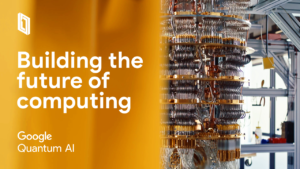Demis Hassabis of Google DeepMind Raises Concerns About Declining AI Advancements

Microsoft’s Investment in AI and Data Centers
Microsoft has recently made headlines with its substantial first-quarter spending, which totaled $20 billion. This investment showcases the company’s dedicated efforts to expand in artificial intelligence (AI) technologies and enhance its data center capabilities.
Concerns About AI Development
Demis Hassabis, the CEO of Google DeepMind, has brought attention to a significant issue in the AI landscape. According to him, the rapid advancements in AI may be hitting a slowdown as companies are running out of accessible digital data to effectively train large language models. Traditionally, the industry has heavily depended on feeding large quantities of online text into AI systems to improve their performance. However, experts are observing that the industry may be approaching "peak data," which suggests that future enhancements will likely require innovative new strategies.
The Challenge of Limited Data
The complexity of AI systems requires enormous amounts of data for training, but merely increasing volume is no longer yielding satisfactory improvements. Some specialists, including Ilya Sutskever from OpenAI, agree that the reliance on abundant data might have reached its limit. As a solution, researchers are exploring alternative ways to generate and utilize data more effectively.
Exploring Alternative Data Generation
One promising approach is synthetic data, where AI models create data from their own outputs instead of relying solely on external sources. This method has shown potential in certain areas, such as mathematics and programming. However, it faces challenges when applied to more nuanced fields like philosophy or the arts, where defining what is correct can be complex. OpenAI has begun implementing synthetic data in its latest system, OpenAI o1. Nevertheless, challenges such as preventing AI from making errors or producing misleading information still exist.
Enhancing Data Quality
Beyond synthetic data, another method to address the limitations imposed by insufficient data is to focus on data quality rather than quantity. Improving the accuracy of data labeling and contextual enrichment can significantly enhance AI training. One model highlighting this approach is Diplo’s cognitive proximity method, which aims to develop AI systems using smaller, well-curated data sets that enable more reliable outcomes.
Industry Perspectives on Future AI Advancements
Within the tech community, opinions on the future speed of AI advancements vary widely. Jensen Huang, the CEO of Nvidia, continues to express optimism about the AI industry, citing sustained strong demand for AI chips and ongoing innovation. On the other hand, some major clients of Nvidia are bracing for a possible slowdown in AI development, echoing concerns raised by experts about the sustainability of current growth rates.
Despite the uncertainty surrounding data limitations and the future pace of AI advancements, investment in AI infrastructure remains robust. Companies are committed to expanding the capabilities of AI systems and exploring new fields of application. As the landscape evolves, firms continue to drive advancements in technology and seek fresh opportunities to redefine the future of artificial intelligence.
Key Points in AI Development
- Microsoft’s Spending: Microsoft invests heavily in AI and data center expansion, totaling $20 billion in the first quarter.
- Data Saturation: Experts, including Demis Hassabis, highlight concerns about reaching "peak data" in AI development.
- Synthetic Data: Alternative methods, such as generating synthetic data, are being explored to improve AI models.
- Quality over Quantity: Focusing on better data labeling and context can enhance AI training, as shown by initiatives like Diplo’s approach.
- Mixed Industry Views: While some tech leaders remain optimistic, others prepare for potential slowdowns in AI progress.
Overall, the future of AI development continues to spark ongoing discussions among experts, researchers, and industry leaders alike.






